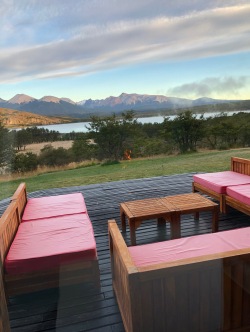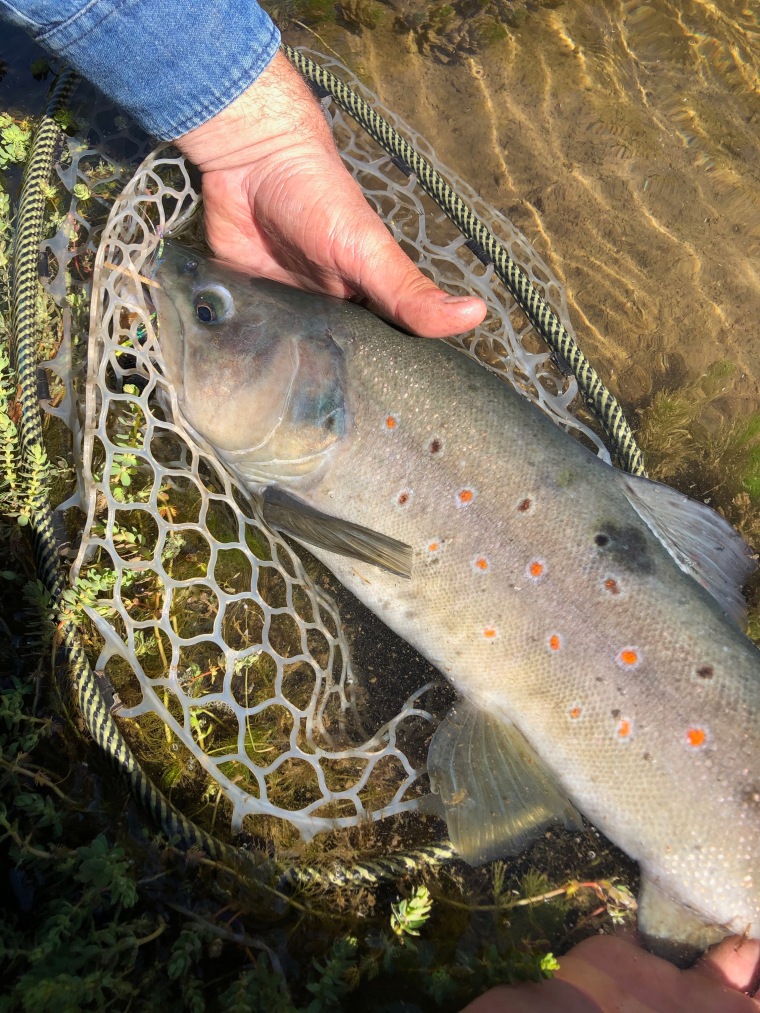
I walked into the Lodge, a beautiful wooden structure planted on a slope overlooking a luscious lake and jagged, snowy peaks beyond. Every seat, nook and table had been placed so that guests could drink in the Patagonian landscape and breathe its intoxicating air. The windows were tall and wide, the 180-degree view from them breath-taking, in the proper sense of the phrase. After 10 days in Tierra del Fuego’s barren Patagonian wastes, this new landscape in Argentina had a soothing, sedative kind of beauty. The Kau Taupen wilderness had forced me to tighten every physical and metaphysical nerve against the raw wildness of the ever-present wind.
But the beauty of the Tres Valles lodge had the opposite effect, of unbuttoning defences, opening up, breathing in as if airing the soul after a winter’s confinement. I had chosen it as an antidote to my sortie into Tierra del Fuego in search of giant Sea Trout. And also, because it seemed to offer regular fly fishing for trout, in which I am much more versed. A part of me saw it as compensation in case I blanked at Kau Taupen. I didn’t.
So, my first thought as I looked over the lake after a three-hour drive from Esquel airport was akin to that feeling you got on birthdays or Christmas when gift-wrapped surprises tumble into your lap, a veritable embarrassment of riches. Is this all for me? And for the dozens of baseball-capped anglers in cargo pants and rain jackets who jostled with me at the carousel for their rod tubes? Not one of them had come to Tres Valles. They had all been absorbed by other lodges, other captivating landscapes. I was alone.
IS ANYBODY HOME?
Once my bags had been dropped in my vast bedroom, I hunted around for other guests. There weren’t any, it seemed. There was nobody at home apart from some friendly kitchen staff with even less English than my Spanish. But I did manage to work out that the other six people staying there were from France, including the owner a French businessman. So I settled in on the veranda, and drank in the view while reading the Guests’ book, which was exhilarating. So many people, so many fish, so much joy.
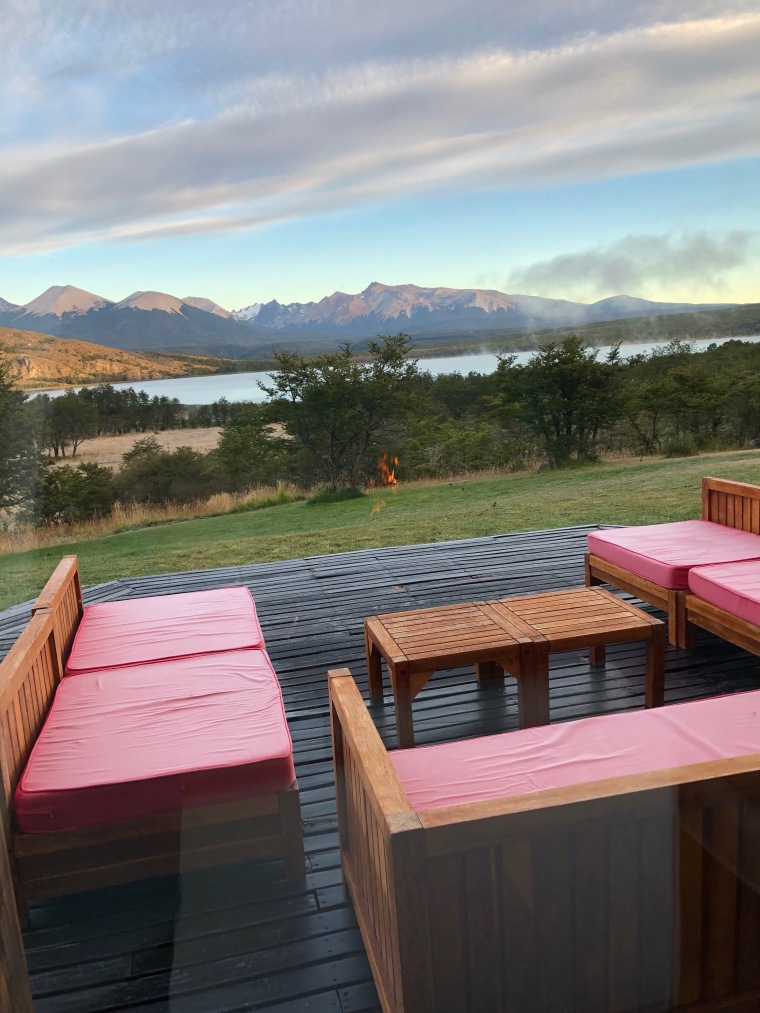
As the sun began to set the others began to return. Bruno, the owner, his wife and small son and three other fishermen from France. We fenced around in English for a few minutes and then slipped into French, which was to become our language for an entire sociable week. I’ve never been sure of the real perceptions the two nations hold of each other. The French call the Brits les rosbifs and the Brits call the French the frogs. But I had studied French at university and have an on-off love affair with France, and once our national guards slipped, the conversation flowed easily around the fire, dinner table and veranda.
It was greatly assisted when I identified as a Brit who does not believe in Brexit. Bugger Brexit and Bugger Boris do not translate exactly into French, but it wasn’t necessary. Around the table the collective dismay at Britain’s capacity for self-harm washed over any well-chosen phrase I could utter. We were as united in our horror as we were galvanised by our love of fishing, and the fishing, they all said, was pretty good. The rivers were low but the climate stable, they said. Even a rosbif might get a few. We fenced about rugby, which both countries love; about food, which both countries love; and about trout fishing. One of men at the table regularly fished the same French waters that the legendary Charles Ritz did in the 1930s. A great deal united us in convivial enjoyment. Very little separated us.
WATER, WATER EVERYWHERE
I awoke in a vast bed with my curtains open on a slice of landscape that resembled views in Switzerland, Rwanda and Scotland. Hills rolled and I knew there would be streams in the folds between; clouds played peek-a-boo with mountain tops; the lodge lawn sloped gently to a vast lake. At the edges, there was the occasional dimple from a rising trout.
Dinner had been a common sizing-up, as happens at any fishing lodge around the first drink or meal. And we had found commonality in a love of landscape and fishing, and the ease that comes with being settled in, and at the mercy of, nature all around us. We were different heights, girths, ages and nationalities, but we were happy to be together in this place, each one at ease with its boundless beauty and possibilities.
The first day with a fishing guide is much the same, probing each other for common and uncommon areas. Miguel, my guide for the week, talked to me as we drove about the Rio Pisco system and what it had to offer. We settled on our first outing on a small river with occasional pools and drove up and down well-worn tracks, each peak offering a new people-free landscape, each trough offering glimpses of streams and creeks. It was nearly too much. There was a moment, on that first day, when I would have settled for a picnic on a hillside to gaze around at all the vast greenery and shimmering water.
But I doubt Miguel would have settled for that. He was (and is) an avid, addicted fisherman. While I was seeing paradise at every turn of the track, he was seeing fishing possibilities. One of the beauties of central Patagonia in Argentina and in Chile is the sheer abundance of fishable water. Lakes, wide rivers, small rivers, rocky streams, spring creeks, and even ditches, they all hold trout which have thrived since their introduction 50 or more years ago. Miguel gave me a bewildering choice on my first day. I opted for a river an hour’s drive away. “It’s low, but there are good pools,” he promised.
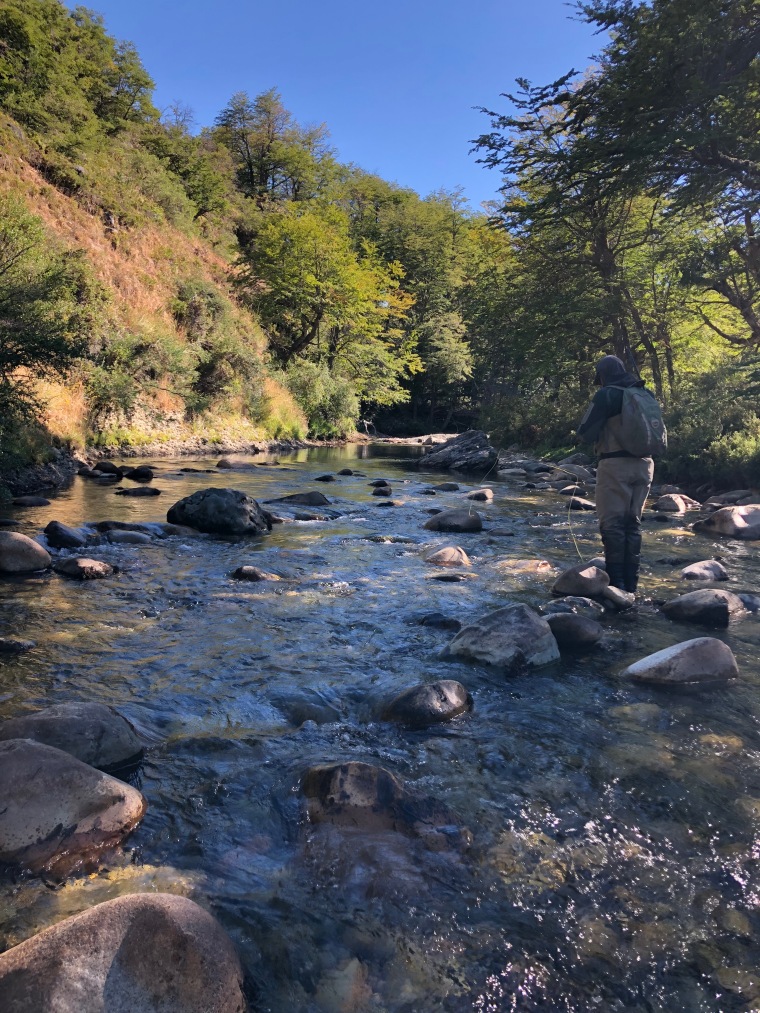
And so it was. Low with good pools. We scrambled down a rocky hillside to a narrow river showing its bones. No fish were rising. We put a small nymph on my five-weight and walked upstream. I caught a couple of small fish on the way but, more importantly, seemed to satisfy Miguel that I was a fairly capable fisherman. And on the way back, to his delight, I nailed a beautiful three-pound brown trout. And then, in a tiny spring creek with about nine inches of water, another of more than four pounds. And then another. Even bigger. The sun shone. The air was fragrant and cool. Water music accompanied our bankside lunch. I felt no need to rush or hurry. It was a perfect first day.
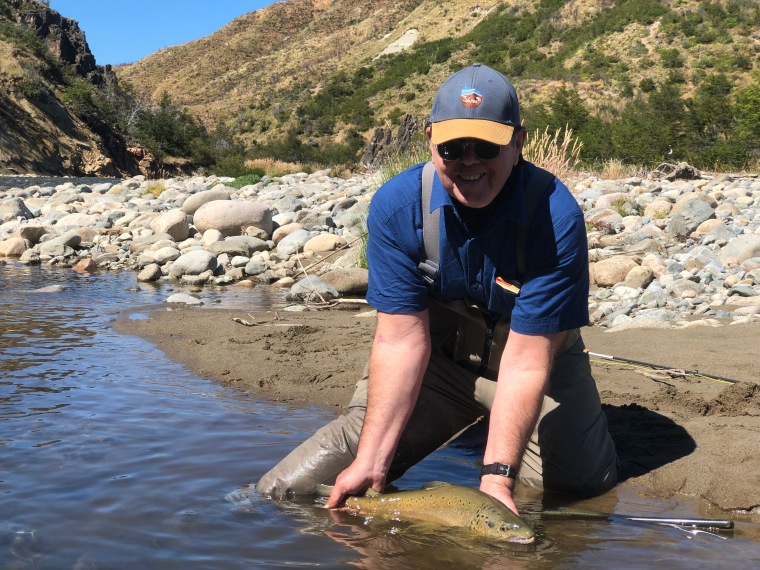
THE DALAI LAMA MAKES A SURPRISE APPEARANCE
Although it’s an outdoor thing, in which the unknowns of weather, water and wind are key, an organised fishing holiday is usually assembled around the knowable, earthly business of eating three times a day. Good company and conversation are part of it. The lodges vie to describe the excellence of their cuisine (very few talk about “cooking” or “food”) and wines. But the unspoken pitch here is people around a table telling stories and enjoying the company.
Breakfast is like settling down in the theatre before the curtain rises. There is a lot of snatched and impatient conversation because the audience wants the show to start. Lunch is an interlude for reflection with the guide on the drama witnessed, a pause in which to reassess and come to conclusions that only the resumption of the play will prove true or false.
Dinner is that moment when the show is over, the curtain has fallen, and the actors acknowledge the applause and either bask in their success or go through the motions and feel, secretly in most cases, the pain of failure.
The drama was good all week, one poor day notwithstanding. That was when Miguel took me up a small and low stream to sight fish with a tiny dry fly for rising trout. I just couldn’t manage to land the fly in the right place because it’s not a style of fishing I do very often. And my eyes are as old as me.
Such was Miguel’s commitment that he took every miss, every failed cast, personally, cursed all manner of donkeys and women at the top of his voice and generally made me feel like a bumbling 69-year-old novice, which I suppose I am in many ways.
But it’s not a day that stands out in my memories. There were two lakes on the map which offered monster fish and relatively lazy fishing from his inflatable boat. On both waters I made my acquaintance with the Dalai Lama, a black streamer sometimes called the Dolly Lama. It’s apparently a fly from Alaska but, like the Dalai Lama himself, worked an awful long way from home. And in all the time I was there I never saw another fisherman on the water.
On one lake I caught the biggest Brook Trout I have ever seen. Lots of them. They pounced out of the weeds to grab the Dalai Lama like herons snaffling fry. Each fish seemed bigger than the last and my biggest was more than five pounds. It came to the net like an innocent being dragged before a firing squad. It just never gave up on the injustice of it all. I was elated. Miguel was circumspect. “There are much bigger ones,” he said. I felt he was leaving something unspoken and let it rest there.
IN SEARCH OF MOBY BROWN
And there was a second lake which contained monster Brown and Rainbow Trout. As we rowed over the shallows in bright sunlight, I could see logs on the sand at the bottom, except that these logs had fins and moved. Miguel said there was one legendary Brown that he had seen in the shallows on our first visit.
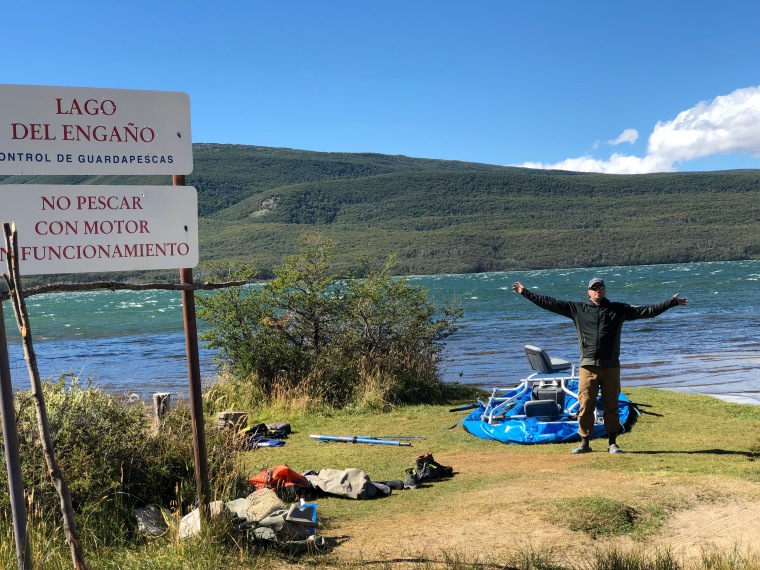
We called it Moby Trout. The first time I caught him he stripped line off my reel so fast that it became a blur in my hands. Then the handle of my reel caught in my jacket, the line went tight and then pinged back towards me. The Dalai Lama caught me in the chest. Miguel invoked several parts of the male anatomy, one or two deities, my mother and some farmyard animals before he calmed down.
We went back to hunt for it on my last day. A couple of “smaller” trout intervened – they were Rainbows and Browns weighing about five/six pounds, but our quarry was almost twice that size. We saw him jump once behind us and turned the boat round and edged towards the spot. I cast. I hooked it. It came out of the water like a missile and then ripped off line and backing as it headed for the reeds.
“Let it run, don’t try to stop it, let it run,” Miguel was yelling. “Keep the reel away from your jacket. Don’t touch anything, just let it go.” So I let it run and it headed for a stretch of bulrushes. “Let it go into the weeds, we can follow it,” yelled Miguel bending his back into the oars to head for the weeds and catch up with the runaway monster.
And then the line suddenly whipped back towards us both. Moby Trout was off, again. I reeled in my line apologetically, in silence. Miguel found some parts of the male anatomy that he had missed in his previous outburst. He also questioned my manhood and parental antecedents.
He leant across the boat to grab the fly. The Dalai Lama has a black body and trailing hook attached by a piece of wire. The hook was no longer there. Only half of the fly came back. The remainder was in Moby Trout’s jaws. The fly had simply snapped in half. Some kind of honour was restored. I felt reprieved. The firing squad had shot blanks. Ten minutes later I caught the biggest Rainbow Trout I have ever landed. Miguel rowed us to the shore so we could net it safely. Eight pounds? Ten pounds? I neither know nor care. I held it in the shallows until it regained its poise and with one contemptuous flick of its enormous tail, it was gone, leaving a metre of shimmering wake.
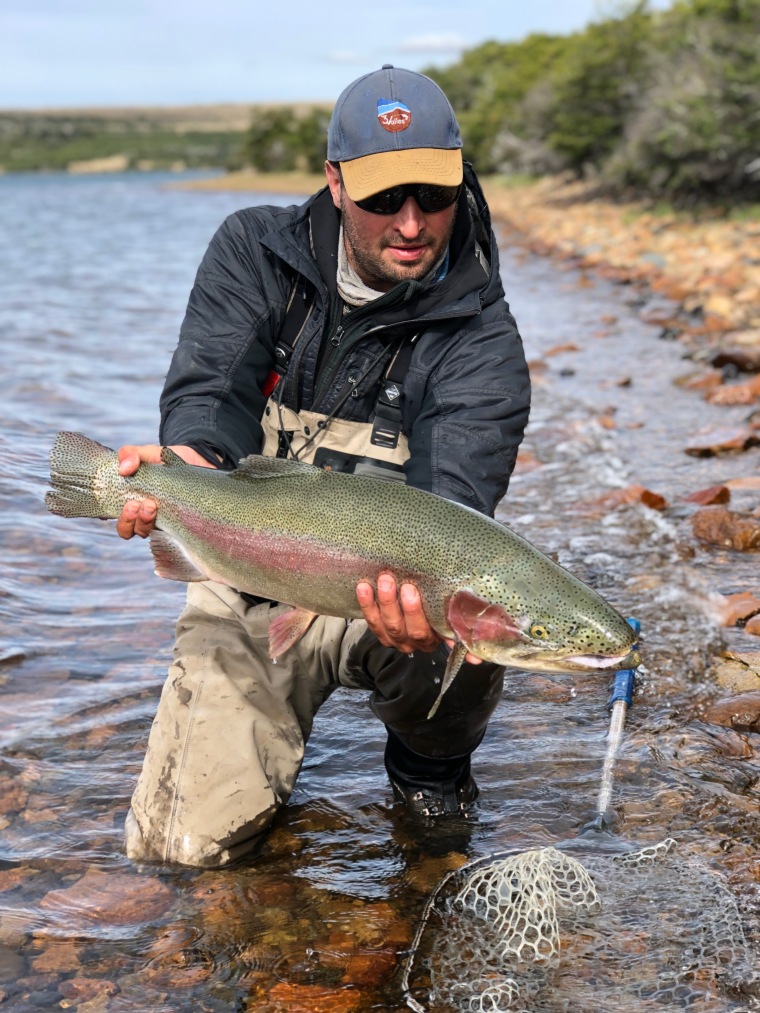
I called a halt to the fishing and Miguel rowed us across the lake to our car, where he disassembled the boat and packed our gear. I sat on a tussock looking out over the water, drinking hot coffee and smoking cigarettes. My whole body was tingling with a sense of well-being. I drank the moment as much as the coffee. In my consciousness there was not a single dark place, snag or regret where my mind could go. There was only the feeling of being enormously lucky, deeply content, and in awe of it all.
DID EINSTEIN FISH?
Months later I sat on a tussock in Essex, England, with my son Lewis. He had driven me from his home to show me all the greenery and nature that exists around the place where he and his girlfriend, Sam, have made home. It was a warm summer’s afternoon. We looked out over meadows and across forests to a distant town and said very little. Not much needed saying. He is proud at having chosen a home near London which can still boast trees and water. I am proud that these are choices he has made, but which reflect my choices too.
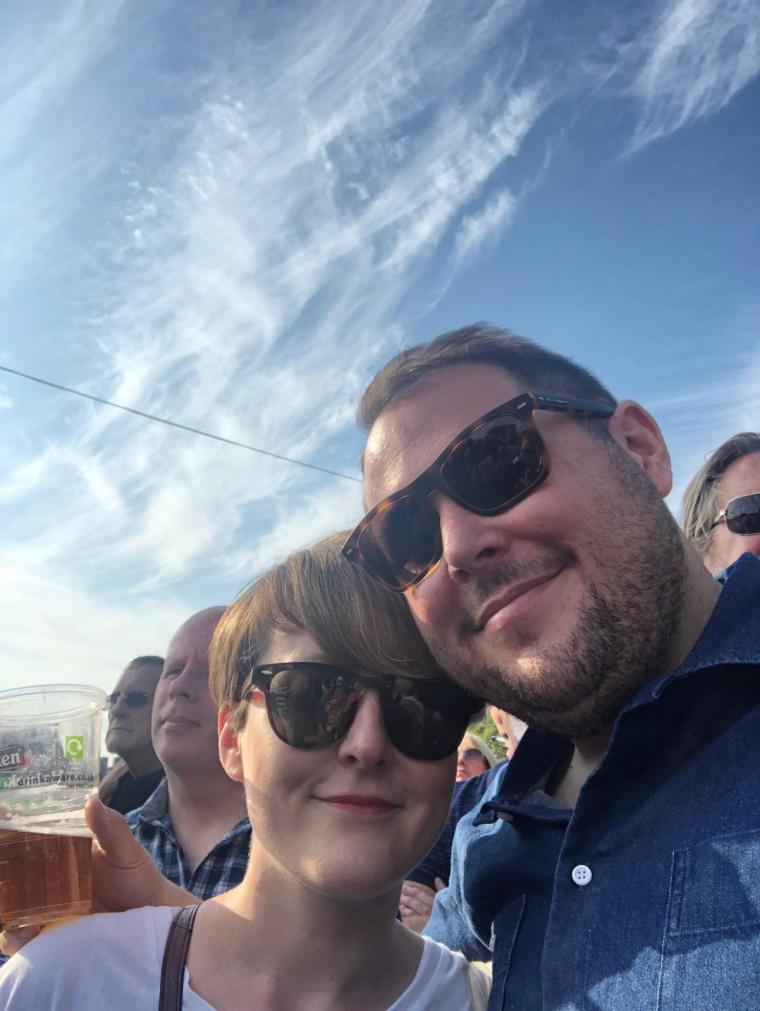
Before we parted, he gave me a novel to read, a Crime/Thriller that I’d missed, and promised it would keep me occupied while I flew back to Dubai. It did. It’s one helluva good read. Before the Fall, by Noah Hawley. But in it I came across some quotes by Albert Einstein, the father of relativity, and someone I had always thought might be a bit dull and scientific. Not a bit of it. I was wrong.
“What I see in Nature is a magnificent structure that we can comprehend only very imperfectly, and that must fill a thinking person with a feeling of humility. This is a genuinely religious feeling that has nothing to do with mysticism,” he wrote. I know I have feelings of that order when I fish, which is a key reason why I do it. I also checked out the Dalai Lama since he was so much a part of Tres Valles for me.
“We need to learn to want what we have, not to have what we want, in order to get stable and steady happiness,” he said. He also had some words which seem appropriate in this age of greed and waste. “Compassion is the radicalism of our time.”
Thank you: Tres Valles, the Dalai Lama, Albert Einstein, and my son.
AJH/Dubai/2019

